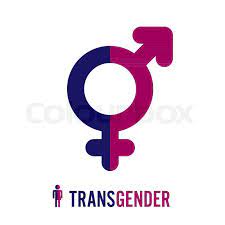Hormone pills have become a popular solution for various health issues, ranging from menstrual irregularities to menopause symptoms. With a growing number of individuals seeking hormonal treatments, it’s essential to understand what these pills are, how they work, and what to expect when taking them. While they can offer significant benefits, they also come with a range of potential side effects that users should be aware of. In this article, we’ll break down the essentials of hormone pills, helping you make an educated decision about whether they are right for you.
What Are Hormone Pills and Why Are They Used?
Hormone pills, commonly referred to as hormone replacement therapy (HRT), are medications designed to supplement or replace hormones in the body that may be in short supply due to various life stages or medical conditions. They’re frequently used to alleviate symptoms associated with menopause, such as hot flashes, night sweats, and mood swings, or to treat hormonal imbalances in younger individuals, like those seen in polycystic ovary syndrome (PCOS). In some cases, hormone pills can also be used for birth control.Male Breast Enhancement
The underlying premise of hormone pills is fairly straightforward: by introducing synthetic hormones into the body, the goal is to restore balance and alleviate troublesome symptoms. This can lead to improved quality of life for many people, making hormone therapy a popular choice for those navigating hormonal changes or imbalances. However, the decision to use hormone pills should not be taken lightly, as understanding the associated benefits and risks is crucial.
Common Types of Hormone Pills You Should Know About
There are several types of hormone pills available, each tailored to target specific hormonal issues. The most commonly prescribed include estrogen pills, progesterone pills, and combination pills that include both hormones. Estrogen pills are often used for menopausal symptoms and can help with bone health, while progesterone is typically prescribed to women who have irregular menstrual cycles or to protect the uterine lining when taking estrogen.
Combination pills, which contain both estrogen and progesterone, are frequently used for birth control and can also help in managing symptoms of menopause. Another class of hormone pills includes medications that mimic the effects of hormones, like birth control pills that prevent ovulation. Each type of hormone pill has its unique indications, so understanding which one might be right for you is important when discussing options with your healthcare provider.
The Good: Benefits of Taking Hormone Pills
One of the primary benefits of hormone pills is their ability to provide significant relief from hormonal imbalances. For women experiencing menopause, hormone replacement therapy can drastically reduce symptoms such as hot flashes, mood swings, and vaginal dryness, leading to a better quality of life. Additionally, estrogen therapy has been shown to help prevent osteoporosis by maintaining bone density, which is particularly beneficial for postmenopausal women.
For younger individuals dealing with hormonal issues like PCOS, hormone pills can regulate menstrual cycles, alleviate acne, and reduce excessive hair growth. By restoring hormonal balance, these medications can also improve overall mood and energy levels. In essence, hormone pills can be a powerful tool in managing a variety of health concerns, making it easier to navigate life’s hormonal ups and downs.
The Not-So-Good: Common Side Effects Explained
While hormone pills can offer significant benefits, they also come with a list of potential side effects that users should be aware of. Common side effects may include nausea, headaches, weight gain, breast tenderness, mood changes, and spotting between periods. These side effects tend to vary depending on the type of hormone pill and the individual’s body chemistry, with some people experiencing minimal discomfort while others might find the side effects more pronounced.
It’s worth noting that many of these side effects can diminish as the body adjusts to the medication over time. However, it’s essential to keep an open line of communication with your healthcare provider to monitor any persistent or troublesome side effects. Being aware of what to expect can help you feel more prepared and empowered during your treatment journey.
Serious Side Effects: When to Seek Medical Help
In addition to common side effects, hormone pills can also carry the risk of more serious complications. Some individuals may experience blood clots, stroke, or heart attack, particularly if they have other risk factors such as smoking, obesity, or a family history of cardiovascular disease. Symptoms to look out for include sudden chest pain, difficulty breathing, severe headaches, or unexpected swelling in the legs.
If any of these serious symptoms occur, it’s crucial to seek medical attention immediately. Regular check-ins with your doctor are essential during hormone therapy, as they can help assess your risk factors and modify your treatment plan if necessary. Remember, it’s always better to err on the side of caution when it comes to your health.
Lifestyle Tips to Minimize Hormone Pill Side Effects
If you’re considering hormone pills or are already using them, adopting a healthy lifestyle can help mitigate some of the side effects. Regular exercise is one of the best ways to enhance your overall well-being and can help combat weight gain, mood swings, and fatigue often associated with hormone therapy. Aim for a balanced routine that includes cardiovascular, strength training, and flexibility exercises.
Additionally, maintaining a well-balanced diet rich in fruits, vegetables, whole grains, and lean proteins can support your body in adjusting to hormonal changes. Staying hydrated and limiting alcohol and caffeine intake may also help minimize side effects. Finally, prioritizing adequate sleep and stress management techniques, such as yoga or meditation, can make a significant difference in how you feel while taking hormone pills.
Hormone Pills vs. Natural Alternatives: What’s Best?
With the rise of natural remedies, many people are contemplating the effectiveness of hormone pills compared to natural alternatives. Herbal supplements, such as black cohosh, evening primrose oil, and phytoestrogens found in soy products, claim to provide relief from hormonal symptoms without the use of synthetic hormones. While some individuals may find these options beneficial, it’s essential to approach them with caution and consult a healthcare professional before starting any natural therapies.
Ultimately, the choice between hormone pills and natural alternatives should be guided by individual needs, preferences, and medical history. Both options have their merits, and what works for one person may not work for another. A thorough discussion with your healthcare provider can help you weigh the pros and cons, ensuring you choose the safest and most effective option for your unique situation.
Navigating the world of hormone pills can be overwhelming, especially with the myriad of options and potential side effects involved. While these medications can offer significant relief for many, it’s crucial to stay informed and proactive about your health. By understanding the benefits and side effects, seeking medical advice, and considering lifestyle changes, you can make an informed decision that aligns with your needs. Always remember that your healthcare provider is your best resource for tailored guidance and support as you embark on your journey with hormone therapy.

